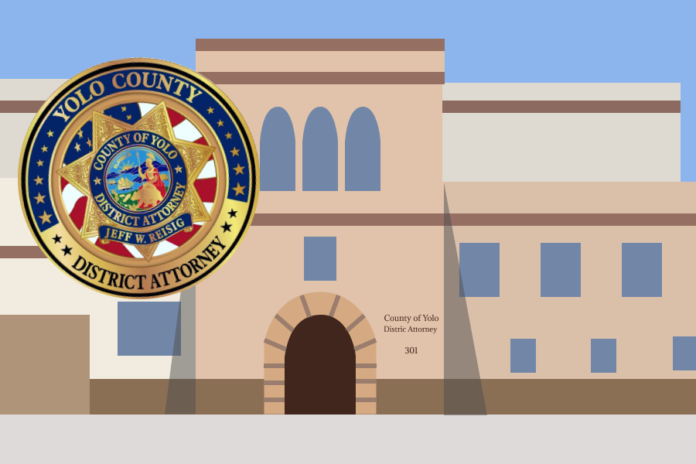Mental Health Court sees decrease in time spent in jail and hospitals for participants
Yolo County announced in a press release that the Mental Health Court (MHC) is working to decriminalize mental illnesses. Its goal is to provide a support program to individuals who have committed crimes as a result of mental illness and substance use disorders through a collaborative program.
Yolo County District Attorney’s Office Chief Deputy Johnathan Raven oversees MHC and the Addiction Intervention Court, as well as other departments where the role of mental illness is being addressed in the criminal justice system. Raven explained that the program’s goal is to decrease the number of crimes committed by people experiencing mental illnesses.
“The belief is that this individual would not have committed the crime if it were not for their mental illness,” Raven said. “Unfortunately, there are many people in our society who have serious mental illnesses and are not becoming well through the current system which treats them. What we are trying to do is explore these individuals and their reason for committing crimes to see if we can help them become productive members of society and not be convicted of a felony, which will only impede their ability to obtain housing and employment.”
MHC has developed through the collaborative effort of the Yolo County District Attorney, Public Defender, Probation Department, Health and Human Services Agency, Yolo County Superior Court and other nonprofit partners such as CommuniCare, Yolo Conflict Resolution Center and National Alliance on Mental Illness. These partners have enough leverage in the local criminal justice system to provide insight and enact changes in its handling of mental health, according to Raven.
The holistic approach of MHC goes beyond talk-therapy and medication, delivering wrap-around treatment focused on mental health, substance abuse, housing, vocational education and physical health. Participants attend group therapy and are taught various topics including life skills, sleep hygiene, diet and exercise.
Individuals must be assessed and recommended by a team consisting of a probation officer and social worker before being admitted into the 18-month program. Although the program can be a lot of work for participants, they are given help and assistance from the MHC team, according to Raven.
Some outcome measures for the MHC program, ending on June 30, 2020, are provided in the press release. The program notes a decreased number of arrests, the days in jail and days in a local or state hospital for its participants. Despite its results, Raven wishes it could have existed for Yolo County individuals 10 to 15 years ago.
“What’s more important is seeing how we have turned around the lives of these individuals,” Raven said. “Seeing the successes of people going from a psychotic state to wanting and doing what they need to in order to get better—getting jobs and apartments and graduating from our program—is one of the most uplifting and satisfying experiences that I have had in my 25 years of working as a prosecutor.”
Aparna Manoj, UC Davis third-year Neurobiology, Physiology and Behavior major and Co-Director of the UC Davis Mental Health Initiative (MHI), notes that the pandemic increased the need for mental health resources for students and community members alike.
“This pandemic has had a huge impact on mental health for everyone as a whole,” Manoj said. “The need to address specific mental health aspects and intersections such as access to basic needs and grief counseling was emphasized, and [MHI] has been able to direct its focus to figuring out what our students and community members really need.”
“Most of the topics in our Mental Health Conference were centralized to what we experience in Davis,” Manoj said. “But connecting an international population to models of what mental health care looks like in the United States and in California gave attendees, especially those who were health care professionals, more resources and ideas on what they could do for their communities and patients.”
To commemorate the closing of May and Mental Health Awareness Month, the interviewees also shared their vision for the future.
According to Manoj, mental health has strongly intersected with advocacy and policy in many nations recently and has an impact that can not be ignored in UC Davis, home to a very global and diverse student population.
Raven is excited for the continued role of MHC in decriminalizing mental illnesses in Yolo County and hopes that mental health is addressed by public defenders as well.
“I hope we see the defense side start trying to place lower level cases in the world of mental health diversion,” Raven said. “We rely on them and their relationship with the individual, so I hope that the defense side will start working with us to direct more cases into the mental health diversion program we have.”
Written by: Jazmin Segura - city@theaggie.org




